featured
Texas Governor Clarifies Hemp THC Stance as Senate Committee Approves Ban
Published
2 days agoon
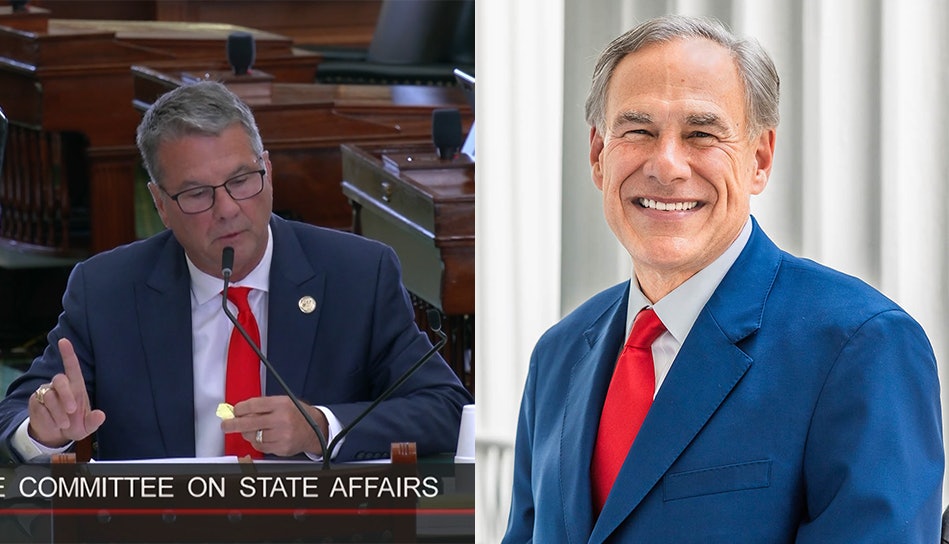
Texas Gov. Greg Abbott specifically called on state lawmakers to regulate hemp-derived products in his proclamation for a special session earlier this month, but the chief executive further explained his position on July 22.
Abbott, who vetoed Senate Bill 3 last month in the regular session—legislation that aimed to implement a blanket ban on consumable hemp products containing detectable amounts of THC or other intoxicating cannabinoids—clarified his stance with multiple news outlets this week.
Specifically, Abbott is calling on the Legislature to:
- ban all cannabinoid hemp products for those younger than 21 years of age;
- ban consumable products containing synthetic cannabinoids, such as delta-8 THC; and
- regulate a hemp industry for adults to ensure that products intended for human consumption don’t exceed 0.3% THC or 3 milligrams of THC.
“Let me be clear: I stand in favor of doing all we can to protect the lives of our children while also protecting the liberty of adults,” Abbott told Fox 4 on Tuesday. “With regard to adults … we do want the THC level to be below 0.3% or … 3 milligrams of THC; it’s called nonintoxicating levels of hemp that would be marketed.”
The governor said his vision includes a highly-regulated system where there would be enforcement checks throughout the supply chain, from hemp farmers to wholesalers, manufacturers, distributors and retailers.
“The only way we’re going to be able to do this is through tough enforcement,” he said. “The money for enforcement would come from all the market participants, and we would create an enforcement structure like what we have in the alcohol system that would ensure that the [Texas Alcoholic Beverage Commission] would be involved in the process.”
Abbott also made clear that he wants Texas to continue to criminalize nonmedical cannabis possession and sales despite Lt. Gov. Dan Patrick claiming that the governor wants to “legalize recreational marijuana” following the June 22 veto of S.B. 3. As the presiding officer of the Senate, Patrick spearheaded S.B. 3’s blanket ban in the regular session.
Despite Abbott’s call to regulate consumable hemp products in the special session, Sen. Charles Perry, R-Lubbock, filed S.B. 5 to kick off the 30-day special session on July 21. The legislation mirrors S.B. 3’s intent: to ban consumable hemp products containing any amount of THC or other intoxicating cannabinoids, providing exceptions only for nonintoxicating CBD and CBG.
S.B. 5 received a hearing in the Texas Senate State Affairs Committee on July 22, when Perry told lawmakers that hemp-derived THC products “is not a regulatable situation.”
Perry said that Texas businesses manufacturing and selling intoxicating hemp products voluntarily “play roulette because they know we don’t have the enforcement in place nor the regulatory framework to ever stay ahead of the chemistry.”
Before the committee voted, 10-0, to advance S.B. 5, its members invited law enforcement officials to provide testimony in support of the legislation, including Allen Police Chief Steve Dye and Chambers County Sheriff Brian Hawthorne.
In particular, Dye said he was representing roughly 1,700 members of the Texas Police Chiefs Association, serving as the organization’s sergeant at arms.
“It is the opinion of the Texas Police Chiefs Association that no amount of personnel or resources in a state this large with this many locations will ever be effective in regulating these dangerous products, which is why the ban is the only viable solution to protect our community from these harmful products,” Dye said.
While there are roughly 8,000 hemp THC product retailers in Texas, the Texas Alcoholic Beverage Commission (TABC) regulates more than 50,000 licensed businesses and more than 100,000 out-of-state producers and distributors each year, according to the TABC.
Hawthorne testified on behalf of the Sheriff’s Association of Texas, which he serves as president.
“Since 2019, we’ve allowed Texas to become a de facto recreational drug state,” Hawthorne said. “And by we, I mean all of us in government: state leadership, state regulatory agencies, law enforcement and prosecutors. We all have failed to prevent the proverbial camel nose from peaking under the tent. The camel we fight against is recreational marijuana. Under the false label of hemp, we have allowed illegal marijuana and THC products to infiltrate our state.”
While some law enforcement officials claim Texas’ hemp THC industry has become too big to regulate, Abbott said he sees it differently.
“Every law enforcement official I’ve talked to has said the same thing, and that is they don’t have the resources to regulate it,” the governor said. “And if they had the resources to be able to regulate it, they would be able to do it, for one. For another, if they’re measuring the hemp product, not based upon the current methodology of 0.3% THC, but on the milligram basis, it’s a whole lot easier to be able to measure it.”
After the Senate State Affairs Committee provided its invitees unlimited time to testify in support of S.B. 5, the body limited all others to two minutes.
Many of those who testified in opposition to the legislation presented similar stances to their previous fight to defeat S.B. 3: They support regulations to age-gate products to deny access to those under 21 years old; to prohibit sales near schools, parks, playgrounds and other areas frequented by children; to require product testing and ensure accurate labeling; and to prevent products and packages from being marketed in manners attractive to children.
Texas consumable hemp product stakeholders also continued to point out that their industry provides millions of dollars in tax revenue and employs some 50,000 workers.
Meanwhile, Todd Harris, the co-owner of Austin-based The Happy Cactus Apothecary, questioned why lawmakers in the state capitol were back pushing the hemp THC ban after Abbott said the special session should revolve around regulation.
Editor’s note: According to the Texas Constitution, “there shall be no legislation [in special session] upon subjects other than those designated in the proclamation of the governor calling such session.”
Harris also scolded Perry for pointing to a court decision in Arkansas as justification for his legislation to ban hemp THC products in Texas.
“Texas does not take its cues from Arkansas,” Harris said. “Texans have spoken for themselves loudly, clearly. You’ve heard the facts, and consistently from veterans to farmers, small business owners, to everyday consumers, the message is the same: We don’t want to ban. We want safe access, fair regulation, freedom of choice, not government overreach, which frankly, this bill feels less like Texas values and more like big government in disguise.”
Harris also pointed out that The Happy Cactus, with two licensed hemp shops in Austin, does not provide access to those under 21 years old.
“We serve over 15,000 adult customers every single year,” he said. “They come back two to three times a month. Not one of them is under 21. And we know this because we card every customer, just like we card Lieutenant [Governor] Dan Patrick in our shop. Our regulars include teachers, EMS workers, veterans, seniors, contractors, and even doctors—pretty wild. If these products were truly dangerous, why would respected professionals rely on them month after month? The truth is these products are helping people.”
RELATED: Texas Lieutenant Governor ‘Carded’ at Compliant Austin-Based Hemp Retailer
Earlier in the hearing, Perry claimed that Texas hemp stores have had seven years to age-gate customers but have failed to do so, adding that age-gating has “never worked out,” pointing to kids who drink and drive, saying that age-gating is “just another cover to legitimize a bad thing.”
Although youth access is often cited as a concern among prohibitionists, a report recently released by the Washington State Liquor and Cannabis Board shows that licensed and regulated cannabis dispensaries were 95% compliant in age-gating purchases in 2024, compared to 88% for the tobacco industry, 83% for the vape industry and 77% for the liquor industry.
Harris said that he worried elected officials in Texas are “intentionally distorting the truth” to push a hemp THC ban that’s driven by special interests over public interests.
“We know Dan Patrick took money from alcohol companies to push this ban,” Harris said. “So, Senator Perry, I truly hope that you haven’t taken money from alcohol companies as well.”

Author: mscannabiz.com
MScannaBIZ for all you Mississippi Cannabis News and Information.
You may like
-


Weed & Psychedelics Are Doing for Eating Disorders What Big Pharma Couldn’t, Survey Says
-


Congressional Committee Pushes To ‘Eliminate’ Illegal Marijuana Grows And Tackle Money Laundering By Chinese-Linked Cannabis Operations
-
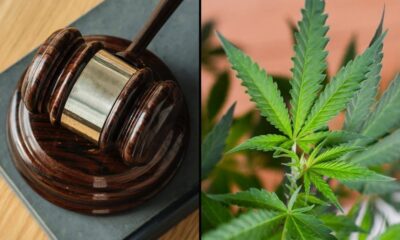

Supreme Court Will Discuss Ban On Marijuana Users’ Gun Ownership In September
-


Watch: £1m cannabis factory found in town’s old Woolworths store | News
-
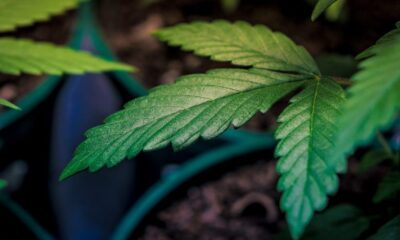

Texas cannabis legalization bill filed in hemp-focused special session (Newsletter: July 25, 2025)
-
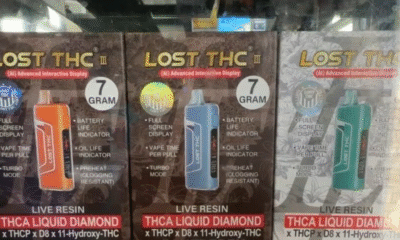

Mississippi AG takes aim at hemp products, including Delta THC | State
featured
Weed & Psychedelics Are Doing for Eating Disorders What Big Pharma Couldn’t, Survey Says
Published
1 hour agoon
July 25, 2025
An international survey published in JAMA Network Open revealed that cannabis and psychedelics such as psilocybin and LSD were perceived as more effective in relieving symptoms of eating disorders than traditional prescription medications.
The study was conducted by a research team from the University of Sydney, led by PhD candidate Sarah-Catherine Rodan from the Lambert Initiative for Cannabinoid Therapeutics, and is considered the most comprehensive to date in this field.
7,600 Voices: A Look Into Lived Experiences
The research analyzed responses from 7,600 individuals with eating disorders, 94% of whom were women, across 83 countries. Participants reported on their use of prescription and non-prescription substances to manage symptoms.
Among respondents:
- 40% had anorexia nervosa.
- 19% had bulimia nervosa.
- 11% had a binge-eating disorder
- 9% had ARFID (avoidant/restrictive food intake disorder)
- 65% reported depression, and 55% reported generalized anxiety
Other commonly reported comorbid conditions included:
- ADHD: 33%
- Substance use disorder: 15%
- Alcoholism: 9%
Top-Rated: Cannabis, Shrooms & LSD Take the Crown
The survey explored which substances people with eating disorders use with or without medical supervision and how they perceive their effects on symptoms and overall mental health.
The findings were clear: cannabis, psilocybin (the active compound in magic mushrooms), and LSD were rated highest for reducing eating disorder symptoms, especially in cases of anorexia and ARFID.
- Cannabis: Highly rated for stimulating appetite and enhancing the pleasurable experience of eating—central issues in restrictive disorders. Prior research shows it activates the medial hypothalamus, a brain region associated with hunger and food enjoyment. However, in individuals with bulimia, the effect was not as positive: it may even worsen behaviors like bingeing or compulsive eating.
- Psilocybin: This hallucinogenic mushroom compound was reported to help with emotional regulation and reduce eating disorder symptoms. Although use was infrequent (1–2 times per year), many respondents noted long-lasting effects, including improvements in anxiety, mood, and body image.
- LSD: Also used occasionally, LSD was perceived as beneficial for overall mental well-being. Some participants linked it to reduced distress around eating, improved self-perception, and better stress management.
Prescription Meds? Helpful… But Not for Everything
Traditional prescription medications, such as antidepressants, received lower scores for their impact on eating disorder-specific symptoms but were still seen as helpful for overall mental health.
As for stimulants, responses were mixed: those with binge-eating disorder rated them positively, while those with restrictive disorders rated them negatively.
The Worst Offenders: Alcohol, Nicotine & Cocaine
Among recreational or non-prescribed substances, alcohol, nicotine, tobacco, and cocaine received the lowest evaluations. Participants reported that these worsened symptoms and negatively affected mental health.
What’s Next: From Survey to Clinical Trials
The study’s findings have led to new clinical research initiatives at the University of Sydney’s Lambert Initiative and Inside Out Institute:
- A clinical trial using psilocybin to treat anorexia nervosa
- A pilot study on CBD (cannabidiol, the non-intoxicating compound in cannabis) for youth with severe anorexia
Eating disorders such as anorexia, bulimia, and binge-eating disorder are complex conditions requiring a comprehensive approach. The fact that so many individuals turn to substances like cannabis or psychedelics and find them effective raises important questions for medicine, mental health care, and public policy.
According to lead researcher Sarah-Catherine Rodan, “Our findings highlight promising pathways for future treatment research.”
Indeed, this isn’t the first time these substances have been studied for eating disorders. For example, MDMA was part of a Phase 3 clinical trial in 2022, showing potential in addressing these conditions. Psilocybin also has a modest but growing body of research supporting its role in treating eating disorders; in 2024, it demonstrated positive mental health effects in patients with anorexia.
And while this sample doesn’t represent the entire global population and the study is based on self-reported data, the findings open the door to future clinical trials, especially given the lack of effective therapeutic options currently available for these conditions.

Author: mscannabiz.com
MScannaBIZ for all you Mississippi Cannabis News and Information.
featured
Congressional Committee Pushes To ‘Eliminate’ Illegal Marijuana Grows And Tackle Money Laundering By Chinese-Linked Cannabis Operations
Published
2 hours agoon
July 25, 2025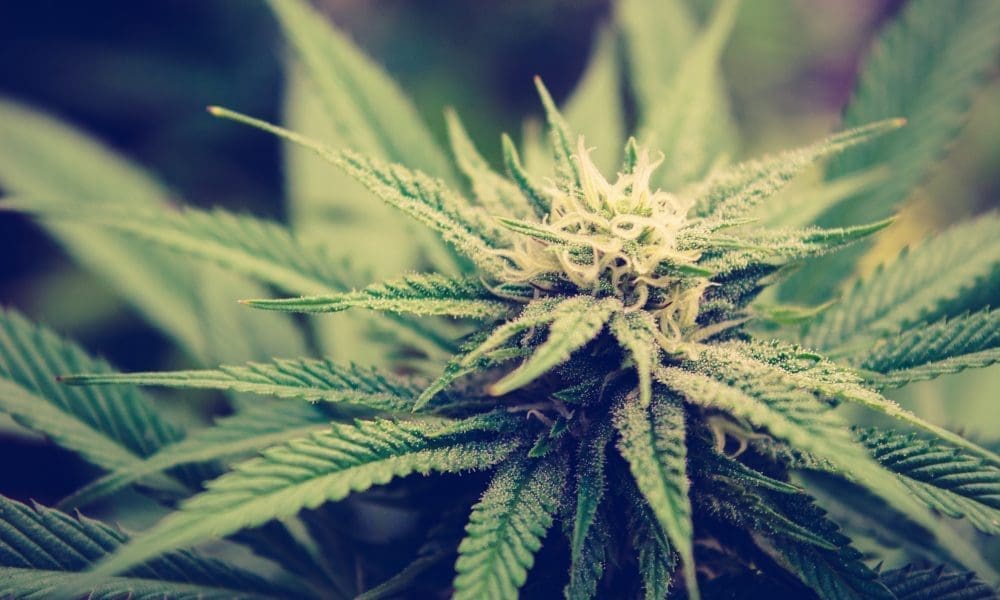
A key congressional committee is calling for a stepped-up effort to eradicate illegal marijuana grows that are “not sanctioned” by state or tribal law, while also tackling money laundering issues associated with illicit Chinese-connected cannabis businesses.
The House Appropriations Committee included sections in reports attached to spending bills that are aimed at increasing federal resources targeting bad actors around the marijuana space.
As in past sessions, the report language for the Interior, Environment, and Related Agencies appropriations legislation says the committee is “aware that trespassers illegally grow marijuana on public lands in California.”
“These unlawful activities harmfully impact the public, water, soil, and wildlife,” it says, adding that members support Forest Services “efforts to develop tools to detect and eradicate grow sites, including a potential remote-sensing survey of Federal public lands to identify grow sites and allow for the development of cost estimates for reclamation.”
Accordingly, Forest Services and the Bureau of Land Management are directed to work with state, local and tribal governments “on survey, reclamation, and prevention efforts to the maximum extent possible, including to prevent the displacement of criminal activities to illegal grow sites on non-Federal lands.”
Further, the covered agencies would be required to work with the Justice Department and U.S. Department of Homeland Security (DHS) to “eliminate grow operations that are not sanctioned by State or Tribal authorities and provide a report to the Committee on its efforts and the estimated cost for reclamation not later than 180 days following the enactment of this Act.”
Here’s the full text of the section:
“Marijuana on Public Lands.—The Committee is aware that trespassers illegally grow marijuana on public lands in California. These unlawful activities harmfully impact the public, water, soil, and wildlife. The Committee supports Forest Service efforts to develop tools to detect and eradicate grow sites, including a potential remote-sensing survey of Federal public lands to identify grow sites and allow for the development of cost estimates for reclamation. The Committee directs the Forest Service and the Bureau of Land Management to continue to cooperate with State, local, and Tribal governments on survey, reclamation, and prevention efforts to the maximum extent possible, including to prevent the displacement of criminal activities to illegal grow sites on non-Federal lands. Additionally, the Committee directs each agency to convene and develop a strategy with the Departments of Justice and Homeland Security to eliminate grow operations that are not sanctioned by State or Tribal authorities and provide a report to the Committee on its efforts and the estimated cost for reclamation not later than 180 days following the enactment of this Act. Additionally, the Committee encourages the Forest Service’s Law Enforcement and Investigations to increase the use of novel models for the detection of illegal marijuana cultivation sites on Forest System land.”
The interior and environment funding bill and report was approved by the panel on Tuesday.
Another report—which is being attached to appropriations legislation covering Commerce, Justice, Science, and Related Agencies (CJS)—focuses on combating money laundering by cannabis businesses associated with the Chinese Community Party (CCP).
It says agencies must “utilize funds directed to anti-money laundering programs to investigate potential money laundering schemes involving CCP-connected marijuana businesses and entities providing financial services to these businesses.”
Here’s the text:
“CCP Money Laundering.—The Committee directs the Department to utilize funds directed to anti-money laundering programs to investigate potential money laundering schemes involving CCP-connected marijuana businesses and entities providing financial services to these businesses. The Department is further directed to provide a report on its activities within 120 days of enactment.”
The underlying CJS bill has proved more controversial, with provisions to block the Justice Department from rescheduling marijuana. The legislation would also maintain a separate longstanding rider protecting state medical cannabis programs from federal interference—though with new language authorizing enhanced penalties for sales near schools and parks.
The CJS legislation also keeps intact another longstanding rider preventing DOJ interference in state hemp research programs.
The committee was expected to take up the draft CJS bill and report on Thursday but that was postponed as lawmakers left the capital for August recess.
Last week, the Senate Appropriations Committee advanced its own version of the CJS measure, which would also maintain protections for states with medical marijuana programs. However, it omits the separate proposal included in the House version preventing DOJ from rescheduling cannabis.
—
Marijuana Moment is tracking hundreds of cannabis, psychedelics and drug policy bills in state legislatures and Congress this year. Patreon supporters pledging at least $25/month get access to our interactive maps, charts and hearing calendar so they don’t miss any developments.![]()
Learn more about our marijuana bill tracker and become a supporter on Patreon to get access.
—
Meanwhile, the Senate committee also recently included a variety of marijuana and psychedelics-related provisions in a report attached to a pair of spending bills—including calls to allow U.S. Department of Veterans Affairs (VA) doctors to recommend medical cannabis if the federal government reschedules it, exploring the possibility of “reducing opioid use through medical marijuana” and cracking down on illicit grow operations.
The panel also approved the veterans funding bill along with an amendment allowing VA doctors to recommend medical cannabis to their military veteran patients in legal states.
A House appropriations subcommittee separately approved a spending bill that would maintain a controversial provision preventing Washington, D.C. from using its own tax dollars to create a regulated marijuana market.

Author: mscannabiz.com
MScannaBIZ for all you Mississippi Cannabis News and Information.
featured
Supreme Court Will Discuss Ban On Marijuana Users’ Gun Ownership In September
Published
3 hours agoon
July 25, 2025
Amid a smattering of recent court cases across the country casting doubt on the constitutionality of the federal government’s blanket ban on firearm possession by marijuana users—a law known as Section 922(g)(3)—the U.S. Supreme Court is set to privately discuss in September whether to take up a pending case that centers on the statute.
According to the high court’s docket for the case, U.S. v. Cooper, the matter has been distributed to justices for consideration in a private conference on September 29. An appeals court panel previously dismissed a three-year prison sentence against the defendant, who was convicted for possession of a firearm while being an active user of marijuana.
The development comes as at least two separate but similar cases wait in the wings. One, U.S. v. Baxter, involves a defendant found in possession of both a firearm and a bag of marijuana. The government charged him under 922(g)(3), which prohibits gun ownership by “unlawful” users of controlled substances.
The U.S. Department of Justice (DOJ) has repeatedly asked the court for more time to decide whether to seek review of an opinion in that case from the U.S. Circuit Court of Appeals for the Eighth Circuit, which ruled the gun ban might be unconstitutional as applied to the defendant.
Most recently, justices extended the government’s deadline to July 3 to file an appeal in that case—a deadline that’s come and gone without any new documents being posted to the docket.
Asked by Marijuana Moment about the status of the solicitor general’s reply in Baxter, a DOJ public affairs representative replied on Thursday: “No comment, thanks.”
Separately, the federal government is asking the Supreme Court to review a different case involving the firearm ban, U.S. v. Hemani, arguing that “Section 922(g)(3) complies with the Second Amendment.”
“That provision targets a category of persons who pose a clear danger of misusing firearms: habitual users of unlawful drugs,” says a filing from U.S. Solicitor General D. John Sauer.
In Cooper, which justices are set to discuss amongst themselves in September, Sauer earlier this month asked that the court hold off on deciding whether to review that case until the Hemani dispute is resolved.
One reason DOJ could be focused on the high court taking up Hemani in particular is that the defendant in that case is not only a cannabis user but also a user of cocaine who’s sold drugs in the past, according to court findings, which could make him less sympathetic in the eyes of the court. Defendants in the other cases were merely found in possession of both a firearm and marijuana.
Lawyers for the defendant in Hemani argued in a brief earlier this week that the high court should decline the case.
“With no circuit split and the limited scope of the summary affirmance below, this case is not an appropriate procedural vehicle for seeking this Court’s review,” they wrote. “The petition for writ of certiorari should be denied.”
If the Supreme Court takes up Hemani and declares 922(g)(3) constitutional, such a ruling could could mean government wins in the remaining cases.
A number of federal courts in recent months have cast doubt on the legality of 922(g)(3), finding generally that while the ban on gun ownership among drug users may not be entirely unconstitutional, there’s scant historical precedent for such a broad restriction of Second Amendment rights on an entire a category of people.
As a recent report from the Congressional Research Service explained the current legal landscape, a growing number of federal courts are now “finding constitutional problems in the application of at least some parts” of the firearms prohibition.
In a ruling earlier this week, for instance, a three-judge panel for the U.S. Court of Appeals for the Eighth Circuit vacated a defendant’s conviction and remanded the case back to a district court, noting that a retrial before a jury may be necessary to determine whether cannabis in fact caused the defendant to be dangerous or pose a credible threat to others.
The new Eighth Circuit opinion appears to differ from a recent Third Circuit ruling in that the new decision says that not every application of 922(g)(3) “require[s] an individualized factual determination,” explaining that such determinations wouldn’t be necessary if the government could demonstrate that a particular drug made an entire class of users dangerous.
By contrast, the Third Circuit earlier this month said in a published opinion that district courts must make “individualized judgments” to determine whether 922(g)(3) is constitutional as applied to particular defendants.
The appeals panel ruled that while a person “need not have harmed someone, threatened harm, or otherwise acted dangerously to justify his disarmament,” the history of gun laws in the country requires that “district courts must make individualized judgments and conclude that disarming a drug user is needed to address a risk that he would pose a physical danger to others.”
Judges in that case noted that historical restrictions on gun ownership under “drunkenness and lunacy laws” in the U.S. “were still always based on an ‘individualized assessment’ rather than a categorical judgment.”
In 2024, the Supreme Court issued a ruling in U.S. v. Rahimi, a case having to do with firearm possession among people subject to domestic violence restraining orders. Justices subsequently remanded a number of pending cases back to lower courts for reconsideration, including U.S. v. Daniels, which centered on the federal gun prohibition for cannabis consumers.
When the Daniels case was first heard by the U.S. Court of Appeals for the Fifth Circuit, judges declared the gun restriction unconstitutional. After the Supreme Court remanded the case back to the Fifth Circuit, the appeals court in a January opinion again took issue with the statute, explaining that while 922(g)(3) wasn’t unconstitutional on its face, it was unconstitutional as applied to a defendant who was only an occasional cannabis user.
The Fifth Circuit’s Daniels ruling came on the heels of a string of other judicial decisions casting doubt on the legality of the ban.
Earlier this year, a federal judge in Rhode Island ruled that the ban was unconstitutional as applied to two defendants, writing that the government failed to establish that the “sweeping” prohibition against gun ownership by marijuana users was grounded in historical precedent.
A federal judge in El Paso separately ruled late last year that the government’s ongoing ban on gun ownership by habitual marijuana users is unconstitutional in the case of a defendant who earlier pleaded guilty to the criminal charge. The court allowed the man to withdraw the plea and ordered that the indictment against him be dismissed.
Another panel of judges, on the U.S. Court of Appeals for the Tenth Circuit, heard oral arguments in November in the government’s appeal of a district court ruling that deemed the gun ban unconstitutional.
In a number of the ongoing cases, DOJ has argued that the prohibition on gun ownership by marijuana users is also supported by the Rahimi decision that upheld the government’s ability to limit the Second Amendment rights of people with domestic violence restraining orders.
DOJ has made such arguments, for example, in favor of the firearms ban in a case in a case in the U.S. Court of Appeals for the Eleventh Circuit. In that matter, a group of Florida medical cannabis patients contends that their Second Amendment rights are being violated because they cannot lawfully buy firearms so long as they are using cannabis as medicine, despite acting in compliance with state law.
DOJ under President Joe Biden consistently argued that medical marijuana patients who possess firearms “endanger public safety,” “pose a greater risk of suicide” and are more likely to commit crimes “to fund their drug habit.”
It remains unclear how the Trump administration will approach the cases. At a NRA conference in 2023, Trump suggested there might be a link between the use of “genetically engineered” marijuana and mass shootings. He listed a number of controversial and unproven factors that he said at the time he would direct the Food and Drug Administration (FDA) to investigate as possibly causing the ongoing scourge of mass shooting afflicting the country.
“We have to look at whether common psychiatric drugs, as well as genetically engineered cannabis and other narcotics, are causing psychotic breaks” that lead to gun violence, he said.
DOJ has claimed in multiple federal cases over the past several years that the statute banning cannabis consumers from owning or possessing guns is constitutional because it’s consistent with the nation’s history of disarming “dangerous” individuals.
In 2023, for example, the Justice Department told the U.S. Court of Appeals for the Third Circuit that historical precedent “comfortably” supports the restriction. Cannabis consumers with guns pose a unique danger to society, the Biden administration claimed, in part because they’re “unlikely” to store their weapon properly.
Last year, Biden’s son Hunter was convicted by a federal jury of violating statute by buying and possessing a gun while an active user of crack cocaine. Two Republican congressmen challenged the basis of that conviction, with one pointing out that there are “millions of marijuana users” who own guns but should not be prosecuted.
The situation has caused confusion among medical marijuana patients, state lawmakers and advocacy groups, among others. The National Rifle Association’s (NRA) lobbying arm said recently that the court rulings on the cannabis and guns issue have “led to a confusing regulatory landscape” that have impacted Americans’ Second Amendment rights.
“Marijuana use is no longer limited to the domain of indigenous religious customs or youth-oriented counterculture and now includes a wide variety of people who use it for medicinal or recreational reasons,” said the advocacy group, which does not have an official stance on cannabis policy generally. “Many of these individuals are otherwise law-abiding and productive members of their communities and want to exercise their right to keep and bear arms.”
Meanwhile, some states have passed their own laws either further restricting or attempting to preserve gun rights as they relate to marijuana. Recently a Pennsylvania lawmaker introduced a bill meant to remove state barriers to medical marijuana patients carrying firearms.
Colorado activists also attempted to qualify an initiative for November’s ballot that would have protected the Second Amendment rights of marijuana consumers in that state, but the campaign’s signature-gathering drive ultimately fell short.
As 2024 drew to a close, the ATF issued a warning to Kentucky residents that, if they choose to participate in the state’s medical marijuana program that’s set to launch imminently, they will be prohibited from buying or possessing firearms under federal law.
The official said that while people who already own firearms aren’t “expected to” turn them over if they become state-legal cannabis patients, those who “wish to follow federal law and not be in violation of it” must “make the decision to divest themselves of those firearms.”
Since then, bipartisan state lawmakers have introduced legislation that would urge Kentucky’s representatives in Congress to amend federal law to clarify that users of medical marijuana may legally possess firearms, though no action has since been taken on that bill.
Kentucky Gov. Andy Beshear (D) said in January that he supported the legislature’s effort to urge the state’s congressional delegation to call for federal reforms to protect the Second Amendment rights of medical marijuana patients, but the governor added that he’d like to see even more sweeping change on the federal level.
“I think the right way to deal with that is not just to focus on that issue, but to change the schedule of marijuana,” Beshear said at a press conference. “What we need to change is the overall marijuana policy by the federal government.”
Photo elements courtesy of rawpixel and Philip Steffan.

Author: mscannabiz.com
MScannaBIZ for all you Mississippi Cannabis News and Information.

Weed & Psychedelics Are Doing for Eating Disorders What Big Pharma Couldn’t, Survey Says

Congressional Committee Pushes To ‘Eliminate’ Illegal Marijuana Grows And Tackle Money Laundering By Chinese-Linked Cannabis Operations

Supreme Court Will Discuss Ban On Marijuana Users’ Gun Ownership In September

Watch: £1m cannabis factory found in town’s old Woolworths store | News

Texas cannabis legalization bill filed in hemp-focused special session (Newsletter: July 25, 2025)

Mississippi AG takes aim at hemp products, including Delta THC | State

Judge overseeing cannabis rescheduling retires, leaving it to Trump’s DEA head (Newsletter: July 24, 2025)

Marijuana Use Has A Positive Impact On Consumers’ Careers, Poll Says

Single Dose Of Psilocybin Provided ‘Rapid Onset’ Relief Of OCD Symptoms, Study Finds

State lawmakers consider ban on THC products in Texas – NBC 5 Dallas-Fort Worth

Most Florida GOP Voters Oppose Marijuana Legalization Ballot Initiative, Poll Finds As Campaign Gathers Signatures

Vacant Erie County property to become industrial marijuana farm

Cypress Hill Honored for 30 Years of Cannabis Advocacy at California State Fair

Marijuana establishments pass $8B in gross sales in Massachusetts

Massachusetts Lawmakers Consider Competing Bills Around Boundaries Of Marijuana Advertising

Moncton cannabis facility criticizes excise tax

Marijuana and the WWE – The Fresh Toast

Crackdown on illegal cannabis shops in Buffalo

Turkish Parliament Legalizes Low-THC Product Sales in Pharmacies

The DEA’s New Boss Holds the Keys to Weed Reform: Will He Take Action?

Former Erie Co. Home To Cannabis Growth Site?

New German Medical Cannabis Restrictions Will Harm Patients And Hinder Industry Growth (Op-Ed)

New Survey: 9 in 10 Americans Want Decontaminated Cannabis
Dream Of Working In Weed? This Scholarship Could Make It Happen

Alert: Department of Cannabis Control updates data dashboards with full data for 2023

Connecticut Appoints The US’s First Cannabis Ombudsperson – Yes there is a pun in there and I’m Sure Erin Kirk Is Going To Hear It More Than Once!

5 best CBD creams of 2024 by Leafly

EU initiative begins bid to open access to psychedelic therapies

Free delta-9 gummies from Bay Smokes
New Study Analyzes the Effects of THCV, CBD on Weight Loss

5 best autoflower seed banks of 2024 by Leafly

Mississippi city official pleads guilty to selling fake CBD products

May 2024 Leafly HighLight: Pink Runtz strain

Curaleaf Start Process Of Getting Their Claws Into The UK’s National Health System – With Former MP (Resigned Today 30/5/24) As The Front Man

Discover New York’s dankest cannabis brands [September 2024]

Horn Lake denies cannabis dispensary request to allow sale of drug paraphernalia and Sunday sales | News

Press Release: CANNRA Calls for Farm Bill to Clarify Existing State Authority to Regulate Hemp Products

Local medical cannabis dispensary reacts to MSDH pulling Rapid Analytics License – WLBT

Nevada CCB to Accept Applications for Cannabis Establishments in White Pine County – “Only one cultivation and one production license will be awarded in White Pine County”

5 best THC drinks of 2024 by Leafly

6 best CBD gummies of 2024 by Leafly

The Daily Hit: October 2, 2024

5 best delta-9 THC gummies of 2024 by Leafly

Weekly Update: Monday, May 13, 2024 including, New Guide for Renewals & May Board meeting application deadline

People In This State Googled ‘Medical Marijuana’ The Most, Study Shows

PRESS RELEASE : Justice Department Submits Proposed Regulation to Reschedule Marijuana

Thailand: Pro-cannabis advocates rally ahead of the government’s plan to recriminalize the plant

Press Release: May 9, STIIIZY and Healing Urban Barrios hosted an Expungement Clinic & Second Chance Resource Fair
Trending
-

 California Cannabis Updates1 year ago
California Cannabis Updates1 year agoAlert: Department of Cannabis Control updates data dashboards with full data for 2023
-

 Breaking News1 year ago
Breaking News1 year agoConnecticut Appoints The US’s First Cannabis Ombudsperson – Yes there is a pun in there and I’m Sure Erin Kirk Is Going To Hear It More Than Once!
-

 best list12 months ago
best list12 months ago5 best CBD creams of 2024 by Leafly
-

 Business10 months ago
Business10 months agoEU initiative begins bid to open access to psychedelic therapies
-

 Bay Smokes1 year ago
Bay Smokes1 year agoFree delta-9 gummies from Bay Smokes
-

 cbd1 year ago
cbd1 year agoNew Study Analyzes the Effects of THCV, CBD on Weight Loss
-

 autoflower seeds10 months ago
autoflower seeds10 months ago5 best autoflower seed banks of 2024 by Leafly
-

 California1 year ago
California1 year agoMay 2024 Leafly HighLight: Pink Runtz strain



